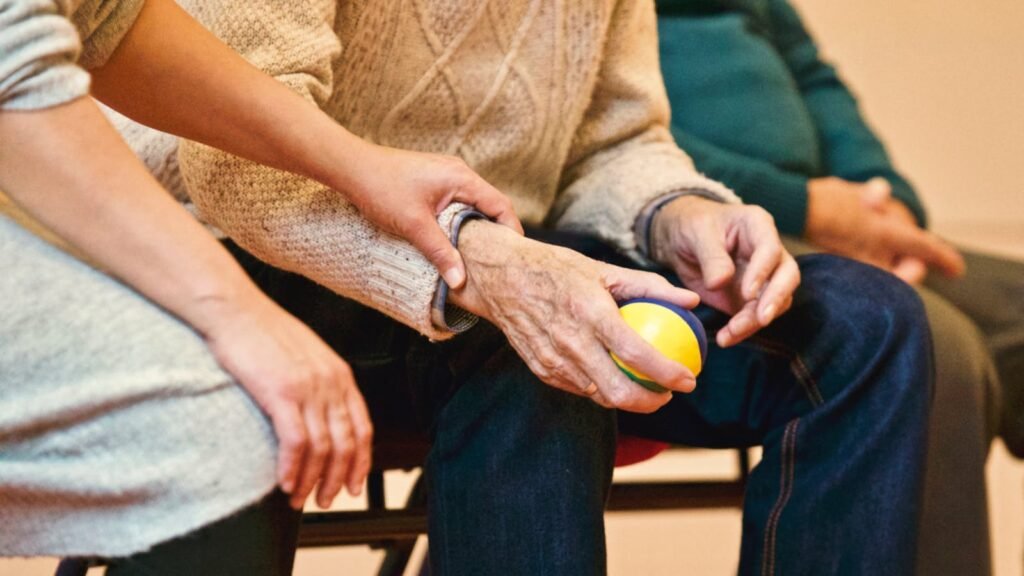Caregiver jobs in Germany with free accommodation and visa sponsorship in 2025 are creating exciting opportunities for international workers who want to migrate legally and work in a stable, respected, and high-demand profession.
As Germany’s elderly population grows and demand for in-home care and assisted living services increases, the country is opening its doors to trained caregivers from around the world.
If you have experience in elder care, personal support, or working with people who have disabilities, Germany offers a well-structured immigration path.
Many employers and care facilities now provide not only visa sponsorship but also free accommodation, making it easier for you to settle down and focus on your career.
In this detailed guide, you’ll learn about the available caregiver roles, visa routes, salary expectations, qualifications needed, application steps, and other benefits associated with working as a caregiver in Germany in 2025.
Why Germany Is Recruiting Foreign Caregivers in 2025
1. Aging Population and Healthcare Demand
Germany’s population is aging rapidly. By 2030, nearly one-third of its residents will be over 60. This shift has placed a growing burden on the healthcare system and created a critical shortage of caregivers, especially in home-based and elderly care sectors.
2. Not Enough Local Care Workers
Despite attractive wages and job security, caregiving is physically and emotionally demanding, leading to high turnover among German workers. Employers now seek international talent to fill roles and support long-term care initiatives.
3. Government-Supported Immigration Pathways
Germany’s immigration policies have been adapted to make it easier for foreign caregivers to enter the country through recognized channels. Several programs offer full visa sponsorship and relocation support for eligible applicants.
Types of Caregiver Jobs Available in Germany
Caregiver jobs in Germany range from private home care to positions in elder care facilities, nursing homes, and rehabilitation centers. Here’s a breakdown of the most common roles:
1. Elderly Caregiver (Altenpfleger/in)
Daily assistance with bathing, grooming, and feeding
Monitoring vital signs and medication
Companionship and support with mobility
Emotional and mental health support
2. Home Support Worker
Caring for seniors or disabled individuals in their private homes
Housekeeping, grocery shopping, and food preparation
Non-medical personal care
3. Nursing Assistant (Pflegehelfer/in)
Supporting registered nurses in clinics and care homes
Assisting with wound care, hygiene routines, and physical therapy
Requires some medical knowledge and formal training
4. Live-in Caregiver
Resides with the client full-time
Around-the-clock assistance
Usually offered with free accommodation and meals
5. Disability Support Worker
Assisting individuals with physical or mental disabilities
Helping with daily routines, transport, and skill development
Qualifications Needed to Work as a Caregiver in Germany
Mandatory Requirements
High school diploma or equivalent
Caregiving experience (minimum 6–12 months preferred)
Basic German language skills (at least A1 to A2 level for entry roles; B1 or higher for recognized qualifications)
Clean criminal record
Good physical and mental health
Willingness to complete German recognition procedures (if applying as a professional nurse or senior caregiver)
Preferred Certifications
Caregiver training certificate or diploma
First Aid or CPR training
References from past caregiving roles
What Is “Free Accommodation” and What Does It Cover?
Many German employers offer free housing as part of their employment package. This helps new workers adjust to the cost of living and removes a significant financial burden.
Typical Inclusions:
Private or shared room in staff housing
Basic utilities (electricity, water, heating)
Access to kitchen or communal facilities
Wi-Fi and laundry (optional)
Some employers also provide free meals, especially in live-in caregiver roles or care home positions where staff live on-site.
Visa Sponsorship: How It Works for Caregiver Jobs
To legally work as a caregiver in Germany, non-EU applicants must obtain a valid work visa. Fortunately, most employers offering caregiver roles also provide visa sponsorship, which includes:
Job offer and signed employment contract
Recognition of foreign qualifications (if required)
Application for work permit with German authorities
Guidance on residence permit and registration
Visa Options for Caregivers in Germany (2025)
1. Skilled Worker Visa (Fachkräftezuwanderungsgesetz)
For candidates with formal caregiver training or nursing backgrounds
Requires B1 German and recognition of foreign qualifications
Offers a pathway to permanent residency
2. Work Visa for Unqualified but Experienced Caregivers
For applicants with experience but no formal certification
Employer must justify the hire and show no suitable local candidate was found
Typically requires A2 German proficiency
3. Visa for the Recognition of Foreign Qualifications
For applicants undergoing the Anerkennung (recognition) process in Germany
Allows part-time work during training
Valid for up to 18 months
Salary Expectations for Caregivers in Germany
| Role | Monthly Gross Salary (€) | Net Salary Estimate (€) |
|---|---|---|
| Entry-Level Caregiver | €2,000 – €2,400 | €1,500 – €1,800 |
| Experienced Caregiver | €2,500 – €3,000 | €1,900 – €2,400 |
| Certified Nursing Assistant | €2,800 – €3,400 | €2,100 – €2,700 |
| Live-in Caregiver | €1,800 – €2,200 + free housing | €1,500 – €1,800 (savings potential high) |
Salaries depend on your role, location, language skills, and experience level.
Cost of Living Comparison With Free Accommodation
| Expense | With Accommodation Provided (€) | Without Accommodation (€) |
|---|---|---|
| Housing | €0 | €400 – €700 |
| Utilities | €0 | €100 – €150 |
| Food (if included) | €0 – €100 | €200 – €300 |
| Public Transport | €30 – €60 | €30 – €60 |
| Total Monthly Costs | €100 – €200 | €750 – €1,200 |
Free housing and partial meals can help you save significantly each month.
Top German Regions Hiring Foreign Caregivers in 2025
1. Bavaria (Bayern)
High demand for elder care in Munich and rural towns
Many care facilities with international staff
2. North Rhine-Westphalia (NRW)
Cities like Cologne, Düsseldorf, and Bonn offer urban job settings
3. Baden-Württemberg
Stuttgart and surrounding areas offer high pay and many job vacancies
4. Saxony and Brandenburg
Regional towns offer lower living costs and are more open to foreign workers with basic German skills
How to Apply for Caregiver Jobs in Germany with Free Accommodation and Visa Sponsorship
Step 1: Prepare Your Documents
Updated resume (in German and/or English)
Passport (valid for at least 12 months)
Educational and caregiver certificates
Reference letters from past employers
German language proof (Goethe A1/A2 or equivalent)
Police clearance certificate
Passport photos (EU style)
Step 2: Find Legitimate Job Listings
Use verified platforms such as:
Make It in Germany
EURES Job Portal
StepStone.de
Care.com Germany
Search using keywords like:
“Caregiver jobs with free accommodation”
“Pflegehilfe visa sponsorship”
“Anerkennung nursing assistant jobs”
Step 3: Apply to Multiple Employers
Tailor each application to the specific job
Highlight caregiving experience and willingness to learn German
Mention your flexibility and relocation readiness
Step 4: Interview Process
Most interviews happen via Zoom, Skype, or Microsoft Teams
Expect questions about past experience, language skills, and willingness to undergo training or recognition
Step 5: Get a Job Offer and Begin Visa Process
Employer issues an offer letter and assists with visa paperwork
Attend visa interview at the German Embassy in your home country
Visa processing time: 6–12 weeks
Common Mistakes to Avoid
Applying without German language skills (even A1 level is important)
Failing to verify employer credentials or job offers
Submitting incomplete documentation
Expecting a high salary with zero experience or certification
Paying large sums to unverified agents or middlemen
Can Caregiver Jobs in Germany Lead to Permanent Residency?
Yes. If you work full-time under a legal work visa for at least 33 months (or 21 months with B1-level German), you can apply for permanent residency.
Benefits of Permanent Residency:
No more work permit restrictions
Family reunification rights
Access to social benefits and healthcare
Opportunity to later apply for German citizenship
Tips for Success in Your Application
Start learning German immediately (A1 certificate is minimum)
Complete a caregiver course in your home country if possible
Build a clean and professional resume
Be honest about your skill level and experience
Apply consistently and follow up on your applications
People also read: Hotel and Hospitality Jobs in Dubai with Free Visa in 2025 for Foreigners
Caregiver jobs in Germany with free accommodation and visa sponsorship in 2025 are among the most accessible and rewarding job opportunities for people with compassion, dedication, and a desire to work abroad.
With rising demand, employer-sponsored visa options, and stable working conditions, Germany is actively welcoming skilled and semi-skilled caregivers to join its workforce.
If you’re ready to commit, learn the language, and follow a structured path, your journey to Germany could begin sooner than you think.
Prepare your documents, improve your skills, and start applying today. The opportunity is real, and it’s waiting for those willing to take the first step.





